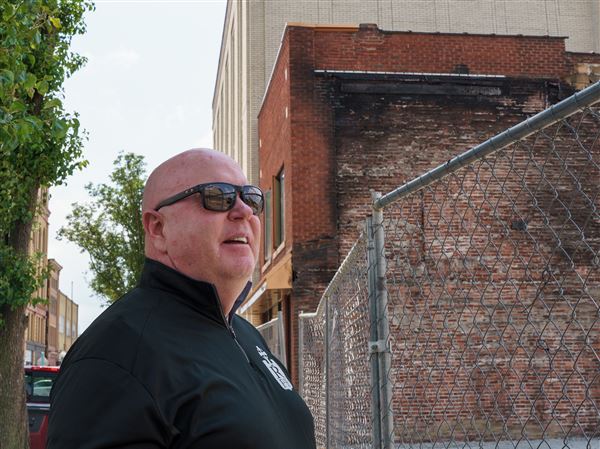TRIPOLI -- Eman al-Obeidy says the government of Col. Muammar el-Qaddafi victimized her twice. First members of his militia kidnapped and repeatedly raped her. Then his state television network attacked her as a thief and a prostitute.
But unlike most rape victims here, Ms. Obeidy, a law student, took her case to the international news media, forcing the Qaddafi security forces to drag her out of a hotel full of journalists as she screamed to tell her story. Thanks to the publicity in her first interviews since then, she may have gotten off easy.
Others in her situation, human rights advocates say, are typically confined for years in so-called rehabilitation facilities, subjected to unscientific virginity tests, deprived of any entertainment or education except lessons in Islam, and subjected to solitary confinement or handcuffs for any sign of resistance to authority.
Ms. Obeidy, who showed severe bruising on her face and thigh when she burst into the hotel, said in the interviews that after she was dragged out she was held for three days in solitary confinement, without medical or psychological help, and repeatedly interrogated by security officials. But her captors were preoccupied with the publicity, she said in an interview with a Libyan opposition satellite channel.
"During my entire arrest period, I was being asked one thing: to come out on the Libyan state channel and say that those who kidnapped me were not from Qaddafi's security forces; rather they were from the revolutionaries and armed gangs," Ms. Obeidy said. "That was their only request, and I kept refusing."
At one point, Ms. Obeidy told Anderson Cooper of CNN in a second interview, she was even placed before state television cameras with several guns pointing at her from just off camera. She was told to change her story, but she again refused, she said.
Ms. Obeidy said she was now under a kind of house arrest in the capital, prohibited from returning to her family in the rebel-held east. On Sunday, she said she had been kidnapped and beaten for trying to meet again with foreign journalists.
"I was kidnapped by a car, and they beat me in the street," she said. "They told me, 'Whenever you leave the house, we will do this to you.' " She added, "I had asked to see the journalists, so they beat and hit me and sent me back."
In a culture where rape can carry a severe stigma, Ms. Obeidy has become an unlikely heroine for her stubborn defiance of the Qaddafi government's capricious police state. "Pure, courageous and lionhearted," declared the opposition Web site Libya February 17, named for the start of the revolt. "May God give her patience."
The Qaddafi government has spun through a series of contradictory statements about Ms. Obeidy since she was forced from the hotel. The government spokesman, Musa Ibrahim, first suggested that she was drunk and possibly insane, later that she was a stable person bringing credible criminal charges, and lastly that she was a prostitute and a thief who had a long history with "those boys." He later said that her rape charges were dropped because she refused a medical exam and that the men had brought defamation charges against her.
But in her interviews, Ms. al-Obeidy said that she had submitted to a medical examination and that it had confirmed she had been raped. After three days of incarceration and interrogation, she said, she was transferred to a prosecutor who said he would press rape charges against the men but has done nothing so far.
She said her ordeal began when armed militiamen at one of the many checkpoints throughout Tripoli removed her from a taxi. In the CNN interview, Ms. Obeidy said the militiamen had bound her hands and legs, beat her and hit her, and poured alcohol in her eyes to blind her. She said they took turns raping her and sodomizing her with rifles. "They would say, 'Let the men from eastern Libya come and see what we are doing to their women and how we rape them,' " Ms. Obeidy said.
Ms. Obeidy said they bound her tightly in part because she fought back, but a 16-year-old girl who was also a captive was less resistant, Ms. Obeidy said.
"They did not bind her because she gave up out of fear and did not try to resist them or try to fight and hit them," Ms. Obeidy said. "At about 7 a.m., I was cold and she came to cover me, and I begged her to untie me. She was so scared, but she untied my hands and feet and she refused to escape out of fear of them. She gave me her name and address and asked me to report everything to the police."
By Monday, supporters of the Qaddafi regime were circulating on the Internet what they said was a pornographic video made by Ms. Obeidy. A state media journalist provided a copy; it turned out to be a relatively chaste homemade video of a belly dancer with little resemblance to Ms. Obeidy.
Like many traditionalist countries in the region, Libyans often treat rape as a crime against the honor of a woman or her family, rather than as an attack on the woman herself. In some families, a girl or woman who has been raped is cast out or shunned.
Under the Qaddafi government, judges hearing rape claims often impose a marriage between the victim and the rapist as a remedy for the woman's dishonor. In other cases, the victim is sent to a center for "women who are vulnerable to engaging in moral misconduct," and she is forbidden to leave until she is released by a husband or married.
Women in these facilities, which are called rehabilitation centers, are paired with men who come seeking wives based in part on docile behavior, one woman told Human Rights Watch, which sent researchers to two of the Libyan centers.
Asked why she thought she had been chosen to marry, one woman at a facility near Tripoli told Human Rights Watch, "Because I am not a troublemaker."
Looking back, Ms. Obeidy said she was determined not to disappear like so many others. She said she had lied to the cabdriver by telling him she worked at the hotel in order to evade the restrictions on meeting foreign journalists, and she refused to be silent even when the undercover security agents among the hotel staff tried to put a coat over her head.
"I knew that they could imprison me and that no one may ever know my story," she said. "And even when they were hitting me and trying to cover my face so that I would not tell people the truth, I was not afraid."
"I have reached the end of my tolerance for this as a human," she said.
First Published: April 5, 2011, 4:00 a.m.














